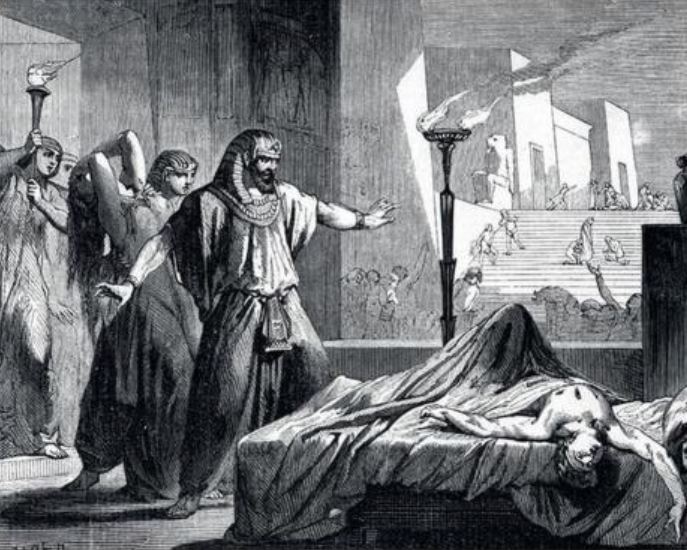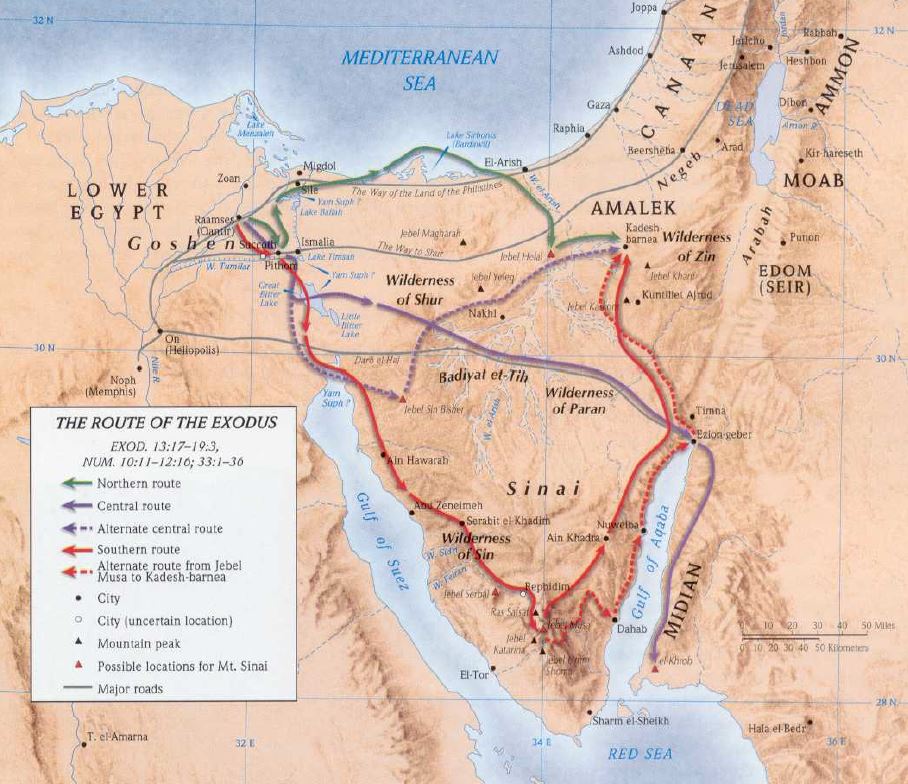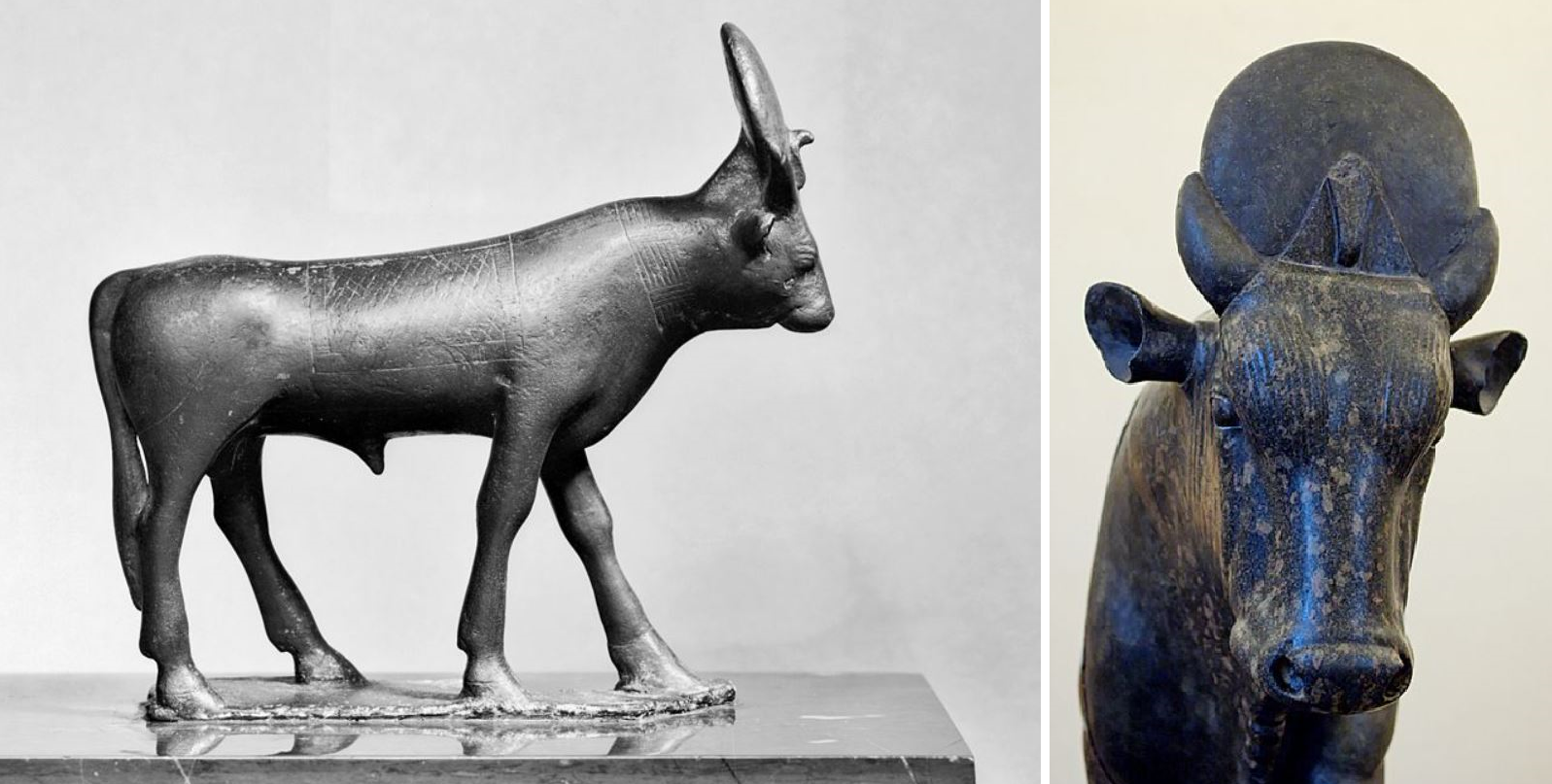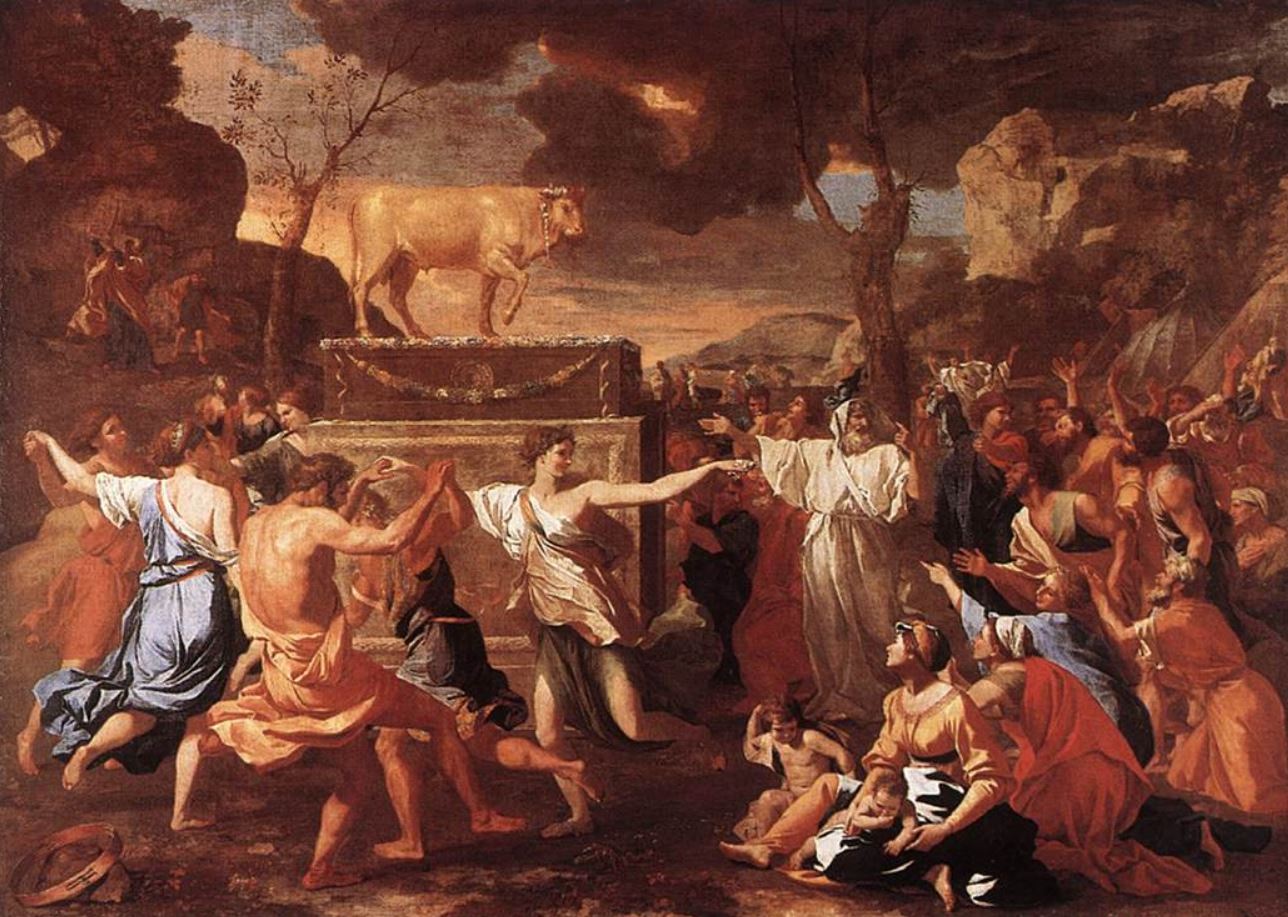1462 B.C. Revival Under Moses


Introduction
This revival story begins with the nation of Israel being enslaved in Egypt (Exodus 1:6-11). Though he was born from Jewish parents, Moses was raised by Pharaoh’s daughter and enjoyed the education and life of royalty (Exodus 2:1-10).
After Moses had matured, he saw the abuse the Israelites were experiencing at the hands of the Egyptians, and in an attempt to help, he killed an Egyptian. When the news of this murder became known, he fled Egypt for Midian (Exodus 2:11-15). While in the land of Midian God spoke to Moses out of a burning bush, telling him of his calling to return to Egypt and deliver the Israelites from their slavery (Exodus 3:1-22).

Death of all firstborn Egyptians
The Plagues on Egypt
When Moses had returned to Egypt, he told Pharaoh that God said to release the Israelites. When Pharaoh refused, God began sending plagues to bring about compliance. It was around mid-April 1462 B.C. when the last of the ten plagues struck the Egyptians, killing all the firstborn Egyptians. It was also on that same day that Israel was expelled from Egypt (Exodus 12:31-33), bringing an end to their 430 years of dwelling in that land (Exodus 12:40-42).
The Journey to Mt. Sinai
Moses then led the nation of Israel, several million of them, through the Red Sea, and then on to Mt. Sinai, where God had previously told Moses he was to lead them
When you have brought the people out of Egypt, you will worship God at this very mountain (Exodus 3:12).

There is not unanimous agreement on the exact route taken during the Exodus nor the exact location of Mt. Sinai.

Apis, the bull god of Egypt
Aaron’s Weakness Led to His Compromise
After having arrived at Mt. Sinai, Moses ascended the mountain to speak with God. Moses’ absence was much longer than was expected, and, assuming Moses was dead, the people called upon Moses’ brother Aaron to make a god for them, and he immediately complied—with him presenting no argument or defense (Exodus 32:1).
Aaron asked the people to give him gold, from which he had a golden calf molded. After it was finished, he introduced that statue to the people as “the gods who brought you out of the land of Egypt” (Exodus 32:4).
The worship of this god (demon) led to the people’s unbridled release of immoral passions: offering sacrifices, feasting, drinking, and sexual immorality (Exodus 32:6;. 1 Corinthians 10:20).
Moses’ Descent from the Mountaintop
When Moses came down off the mountain and saw the golden calf, with the people before it in worship and all sorts of pagan revelry, he was infuriated and he threw down the stone tablets inscribed by God’s own hand, breaking them (Exodus 32:19).
God declared then and there that He wanted to destroy all of them and use Moses to start a new nation (Exodus 32:10). Moses instead began interceding on behalf of the nation, pleading with God for forgiveness and restoration.

Adoration of the golden calf
Steps Moses Took to Bring the People Back to God:
1. Destruction of the idol (Exodus 32:20).
2. Punishment of the willfully sinful, the unrepentant These were the ringleaders, those who refused to humble themselves in shame and who were still running around naked, deliberately flaunting their opposition to God. It was on these that the wrath of God fell. Moses called out to see who would stand with him against the immorality and idolatry, and the sons of Levi came to his side (Exodus 32:26). These Levites were then ordered to kill everyone who refused to humble themselves in repentance, and there were 3,000 that were slain (Exodus 32:27-28).
3. Intercession of Moses Moses then returned up the mountain to make intercession for the people to obtain God’s mercy (Exodus 32:30).
4. Consequences for sin In addition to the 3,000 who were blatantly unrepentant and were slain, the Lord also sent an additional punishment in the form of a plague. What type of plague or how many were affected, or possibly died, the Scriptures do not say (Exodus 32:35).
5. Lifting of God’s presence God threatened that He would lift His abiding presence off the nation and that in His place there would be an attending angel that would take His place (Exodus 32:34; 33:1-3). Moses made intercession, begging God not to depart from them, and God heard Moses’ prayer and responded favorably to Moses’ request (Exodus 33:12-17).
Lessons from this Revival
1. Nothing is hidden from God’s eyes. Even before Moses descended from the mountain, God had already seen the sinfulness that had overtaken the people (Exodus 32:7-8;.1 Peter 3:12).
2. God will hold people accountable for their sin. Sin must be atoned for. It is still true, even in this age of grace, that the soul of the sinner must die if sin is not atoned for (Ezekiel 18:4; John 3:36; Romans 1:18; Romans 6:23; Galatians 6:7).
3. There is great value in intercession. Moses met with God on three separate occasions following Israel’s sinful behavior. This was to have the sins of the people forgiven, as well as to ask God not to take His presence from them (Exodus 32:30-32; 33:8-11; 33:12-17). God’s presence and favor can lift today from a person if they continue in willful unrepentant lifestyles. Here are a few verses to prove this:
…► Prayers won’t be answered (Psalm 66:18; Isaiah 59:1-2; 1 Peter 3:12)
…► God’s mercy, protection, and presence will be turned away (Jeremiah 18:17; Ephesians 5:14; Revelation 2:4-5; 2:14-16; 2:20-23; 3:2-3; 3:15-18)
4. God delights in showing mercy (Ezekiel 33:11; Micah 7:18).
…► After humility, prayer, and confession, we can be assured of forgiveness (2 Chronicles 7:14;.1 John 1:9)
Return to List of Revival Stories
Chet & Phyllis Swearingen:
Office: (260) 920-8248
romans1015@outlook.com
Beautiful Feet
P.O. Box 915
Auburn, IN 46706

